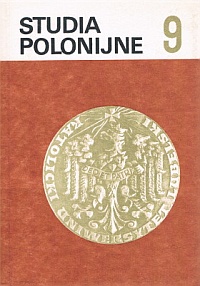Polonia berlińska w walce o świadomość narodową Polaków w Niemczech
Main Article Content
Abstrakt
Around half a million Poles remained in Germany after the first world war, particularly on the autochthonous territories, in Westphalia and the Rhine District, Berlin and other cities. „Polish Berlin” was socially structured. In the 19th century there was a large group of financial emigration settled in Berlin. They were mainly workers, small craftsmen and merchants. The Poles in Berlin were not coherent but scattered among the Germans. Consequently, they got quickly assimilated. The German clergy contributed a lot to the process of their germanization. After the war some of the emigrants returned to Poland but the majority did not. A group of Polish leaders took efforts to revive their national and organizational life.
The Polish autochthons were systematically germanized. Poland began a struggle to keep these territories Polish. The Polish emigrants appeared very helpful. In the inter war period the Polish government and the society organized material and moral help for the Poles in Germany, the youth in particular, since ,,[...] they would decide in the future on the annexation of the unliberated land to Poland”. Poznań was the leading city in this action. No official steps were taken to change the western Polish border but some unofficial statements concerning the matter were made by the representatives of the government.
„Polish Berlin” was ready for the struggle. The international Polish minority organization, the Polish school and the church were to be founded in Berlin.
However, the majority of the Berlin Polonia had already been assimilated. Strong political and economic pressure, little help from Poland and weak Polish organizations did not let the plans come true. Nevertheless, many of the assimilated unconsciously felt themselves Polish and helped a lot to the Polish leaders who were persecuted during the war.

